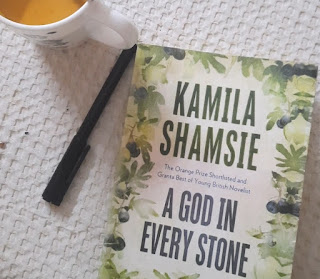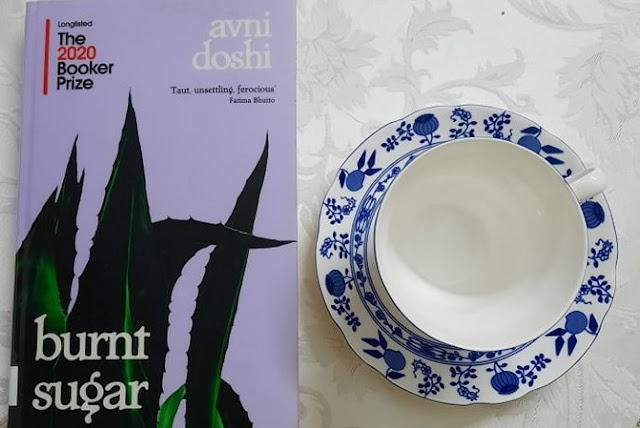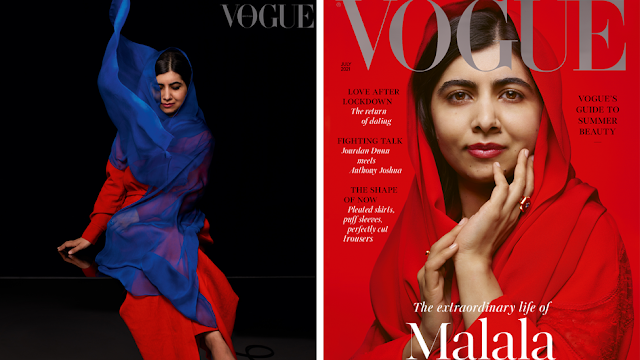Reading: Kamila Shamsie's 'A God in Every Stone' (2014) + summer goals
 |
| Photo my own |
This summer, the plan is to read through the oeuvres of a bunch of Pakistani writers (predominantly writing in English) and by the end of it, to do a reading wrap up. I have made myself an extensive reading list, one that doesn't curate themes and topics like those from my undergraduate times, but one whose goal is to be well-versed in Pakistan's literary output. I am trying to place myself in a tradition with my writing, and I think I need to reflect on where my voice fits in proceeding from what has already been done.
I recently read Kamila Shamsie's colonial era novel 'A God in Every Stone' which has left me with conflicted feelings. It's not a bad book by any means- it deals very expertly with the history of Peshawar as a city, its archeological significance. It also takes us through a slice of colonial history, culminating in the events of 23 April 1930, where a massacre of unarmed Pashtuns takes place at the hands of the British. As a Pakistani, not from Peshawar, the fact that I didn't know about these events was revealing to me- about how fragmented our understanding of our own history is.
The book takes the idea of circular narrative to new levels, I think. It starts with the image of Skylax's swirling circlet- the archeological artefact being sought throughout the book by the British lady Viv and her little local acolyte Najeeb. And by the time we get to the end, and the narrative is overwhelmed by the event and aftermath of the massacre, we get a dizzying perspectival encircling of those events through the eyes of various newly introduced characters. That circular motion is almost visceral, and I feel vaguely vertiginous thinking about it. Most of the book is dominated by the perspective of Viv- the aforementioned British lady, an imperialist by circumstance of birth, a generally annoying character- and the newly introduced perspectives of local women towards the latter half of the book slowly diminish and wear away Viv's initial dominant perspective. So, all this to say, that the book is structurally masterful and very effective in that way.
But this is what my admiration of it amounts to. The reading experience is slow (not in a good way), and I really had to employ all my willpower to arrive at those finally redemptive qualities of the book. The characters are never explored deeply enough and it feels like they are placed there so that the writer can explore the history, rather than the characters themselves. The ambitious timescale and emphasis on the evocative descriptions of the setting perhaps overwhelm the characters, and this might be part of the point- that our circumstances and history shape us and force us into directions we would not have chosen. A lot of the tragedies of the book befall the characters because of external sources, colonialism, war, ideological and territorial battles. Their internal moral barometers are uncertain and shaky because of these external pressures. Perhaps this is partly why these characters feel a bit unformed. Perhaps they needed more space in which to exist, in which their emotional arcs could have been allowed to play out. For instance, I don't think Viv is supposed to be as unlikeable as I find her- I think she is meant to be sympathetic, but it didn't work for me, because her emotions never feel real enough.
Also, the writing. There's a strange tonal inconsistency to it, which I think reflects the fact that this book is just trying to do too much. It's trying to contain too much, too many dates, too many disparate elements, and the writing feels like it cannot settle into a single mood. Sometimes it's lyrical, at other times it's very direct, and sometimes it feels flat. If I was being generous I could say this too is an appropriate reflection of the disparate forces that the novel is grappling with, but really, it just got in the way of the reading experience.
I feel like I've learnt things from this novel- I'm glad to have learned about the history. And I'm glad to have learned what I would have done differently.

